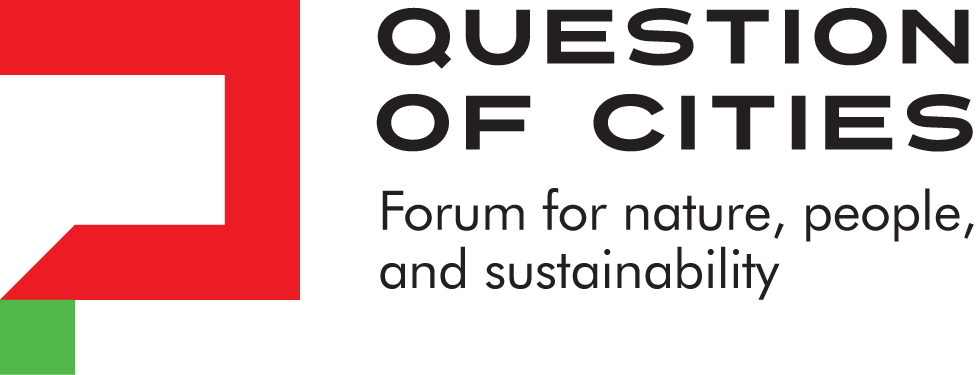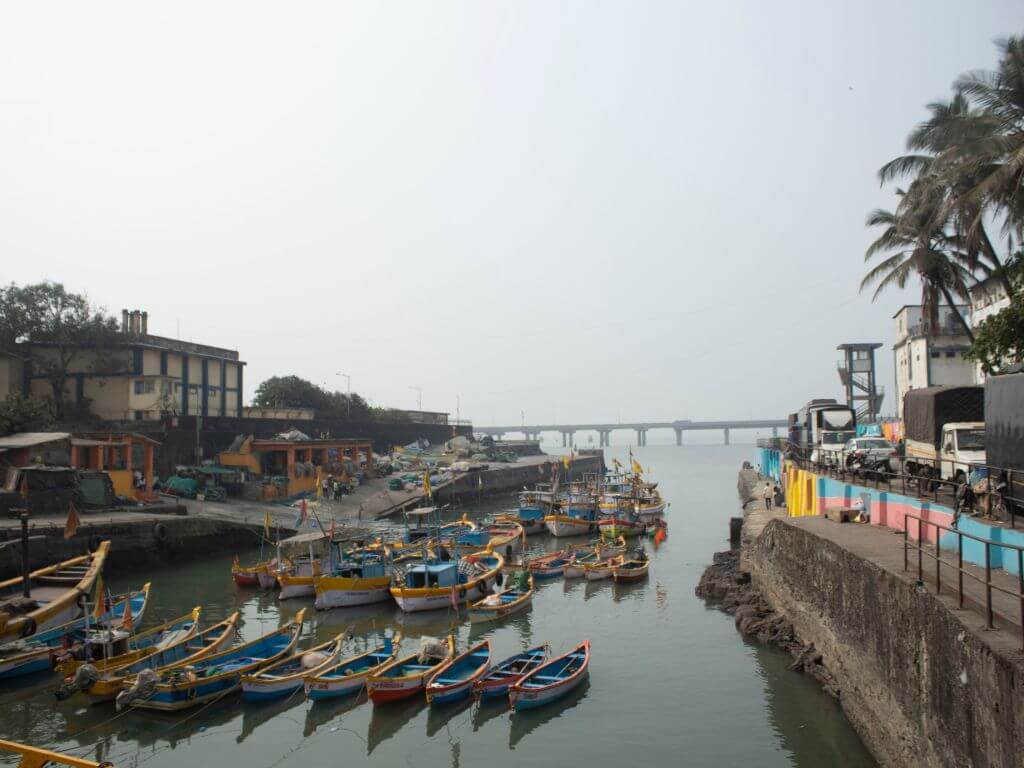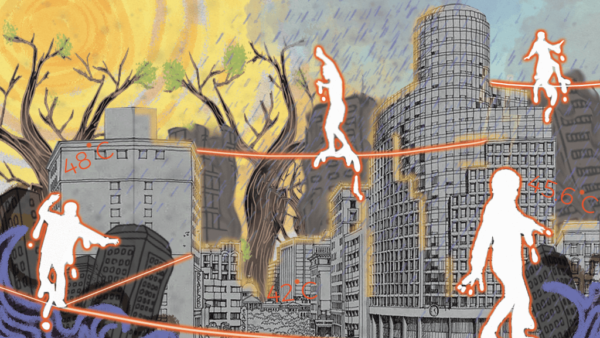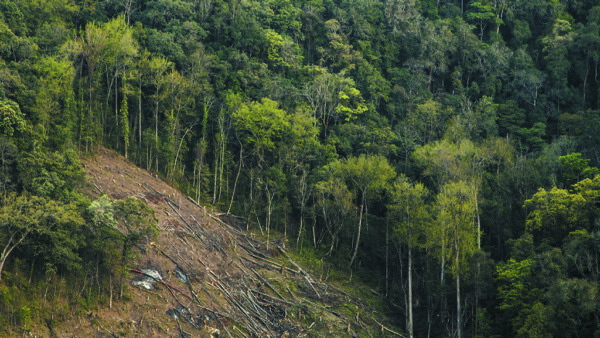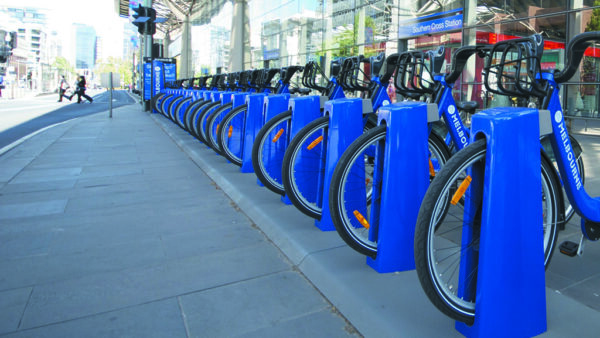Mumbai’s latest infrastructure project, the ongoing Coastal Road Project, has been billed as the big-ticket infrastructure project, a major step in the city’s development. Large swathes of land-filling have been done along the coastline of the Arabian Sea since work began in 2018. All along the route of the construction, 10.6 kilometres from Marine Drive to the existing Bandra-Worli sea link, huge barricades and boards sport the tagline ‘Connecting People and Places’.
However, even as the nearly Rs 13,000-crore project promises to make road travel smoother and faster between south Mumbai and suburbs, it seems to have snapped the connection between the original settlers of the city, the fishing community or Kolis, and the sea. At the Worli Koliwada, anxiety and uncertainty about their place in the city and its development have replaced their comfort with the sea and their characteristic joie de vivre.
The Coastal Road, which is supposed to speed up travel time for Mumbaikars using the road network, has slowed down the lives of fisherfolk in many ways. The shrinking sea and the construction frenzy have affected the way they fish; they have to go deep into the sea to get a good catch but they get less than they used to. The reduced fish catch has meant that the amount of time they spend at sea has increased but their earnings are still below par. As the Kolis in Worli Koliwada say, they are struggling to make ends meet.
The average daily income of cast-net fishers and handpickers here has reduced to half while their daily expenditure has increased by 27 per cent, according to a report published by the Tata Institute of Social Sciences (TISS) and commissioned by the Brihanmumbai Municipal Corporation.[1] Also, they point out that they were forced to protest for years, with governments unwilling to even give them a hearing, to merely have the span between the pillars of the road increased from the planned 60 metres to 120 metres to allow their fishing boats easy passage.
The ongoing construction has not only affected their lives and livelihoods but also the marine ecosystem along the stretch on which their lives depend. A major impact has been on the fish catch. “The land-filling work for the project has led to the destruction of important breeding grounds of a variety of fishes, which has resulted in a steep decline in the quantity of fish,” says Nitesh Patil, secretary of Worli Koliwada Nakhwa society.
This photo essay captures the impact of the Coastal Road construction on the Kolis of Worli Koliwada.
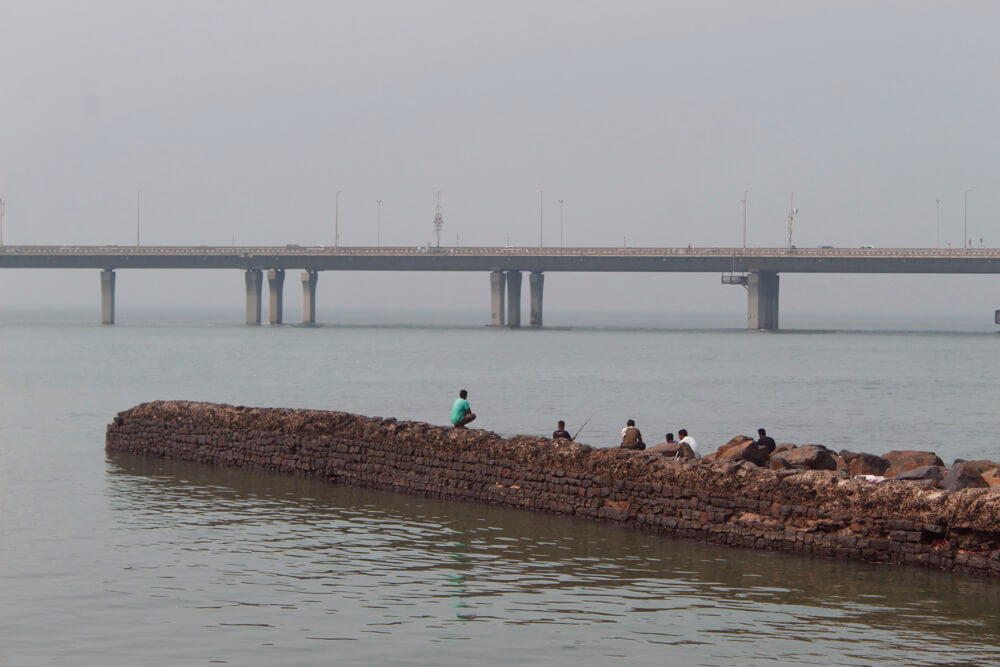
Fishermen gather at the nearly century-old Cleveland Bunder, one of the fish landing centres in Worli Koliwada, every morning to prepare to take their boats into the sea. On a muggy March morning, when they came to start work, they heard from their friends and community members that there were not enough fish that day. This worried them and added to their anxiety on the catch and their daily earning. These men have relatively smaller boats but the 60 metres span between the columns erected in the sea proved too little for the boats to pass through. We have been demanding that it be 200 metres or at least 120 metres, but no one listened for years, they said.
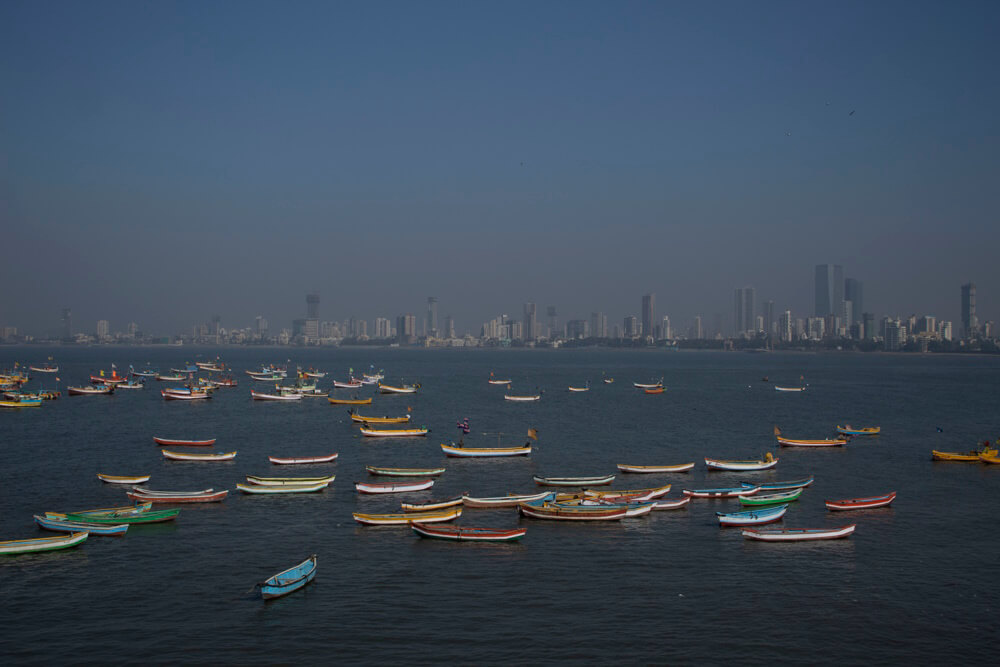
The first phase of the Coastal Road is a combination of bridges and underground tunnels. One of the bridges will pass through the Worli Koliwada. “It took us multiple rounds of courts and three years of struggle to get the navigation span widened. The new government agreed to widen it to 120 metres,” says Ritushree Diwalkar, resident of the Koliwada. Although the gap has been widened after the protests, the construction continues to have an impact on the lives of the fisherfolk. “When our boys used to go fishing, the people involved in constructing the road would not allow them to fish,” says a fisherman.
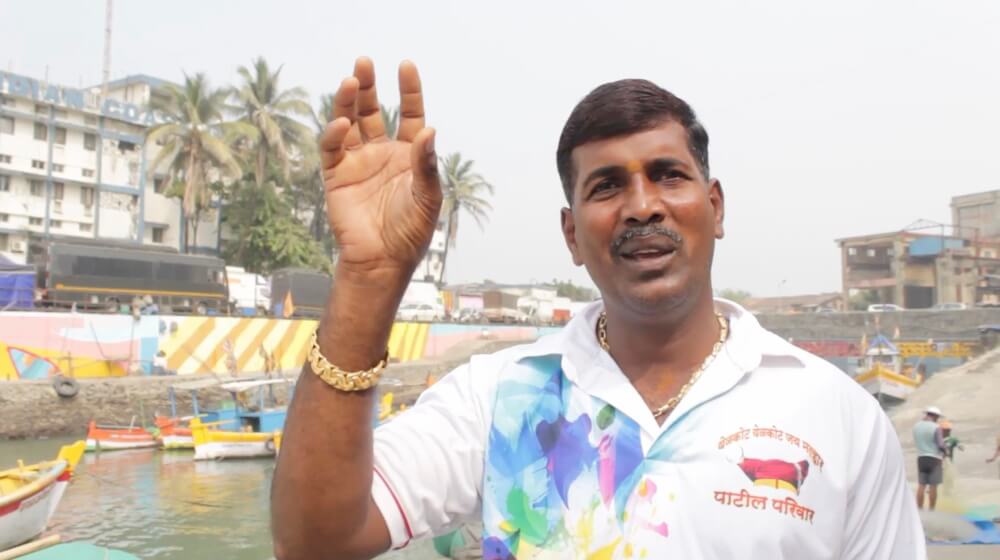
“When a crow wants water, it throws stones into the water and raises the water level. The same situation has happened here. The water level has been increasing in Koliwada due to land-filling,” says Nitesh Patil. The large-scale project has changed Mumbai’s coastline. Earlier, the Cleveland Bunder and the area around it used to be rocky, serving as a breeding ground for a variety of fishes. But the reclamation and landfilling have diverted the water current and, consequently, the fish breeding grounds have been affected. The TISS-BMC study echoed this; it found that the species that live on small rocks and the seabed have reduced because of massive construction in the area.
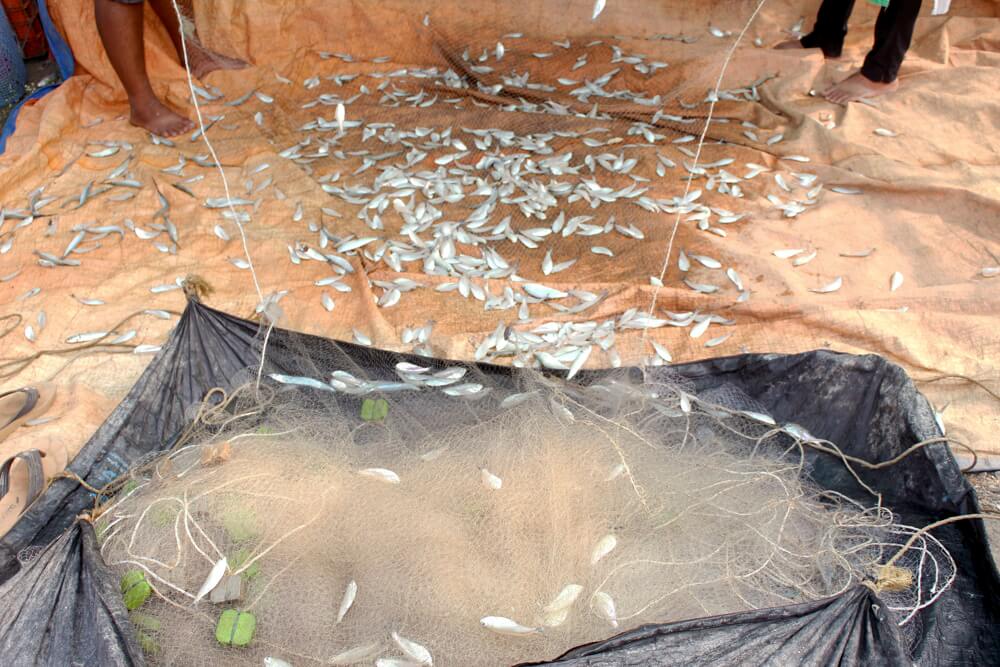
This is the catch of the day for a fisherman– too little by the standards of the Kolis here. The quantity of bhilja (anchovy) fish has reduced, he says. Before the coastal road construction began, the fisherfolk used to get a catch of varieties of fish which they rarely find now. Small-scale fishermen are known to trawl for fish in the waters near Mumbai. They now have to go further into the sea. But that doesn’t guarantee them a good catch since the fishing areas have been affected due to the gradual landfilling of the sea. “The Coastal Road construction has completely destroyed us. The rocky shore, which used to be our primary fishing spot, has been completely destroyed,” says Nitesh Patil.
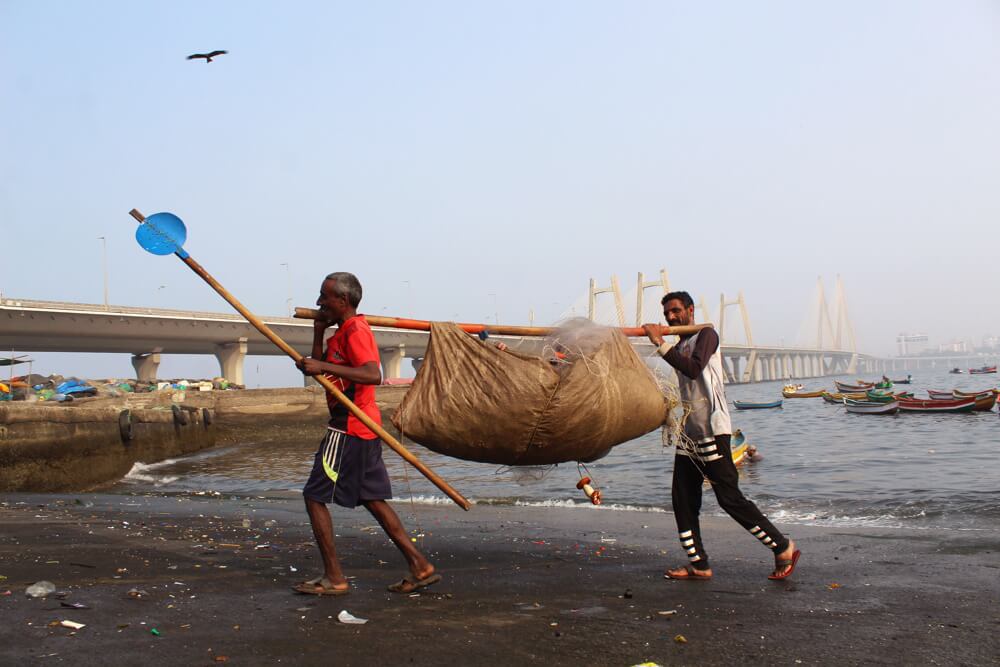
Fishing is community or team work with two-four fishermen working together for a good catch. Here, two Kolis shared a boat and returned to the shore with the day’s catch. Cooperation and collaboration are critical to their successful venture into the sea. Their time-tested methods are not enough since the Coastal Road construction began. They have had to go farther into the sea, replacing their small low-power engine boats with high-power ones. And they have to now cross four spans-bridges. “The fish catch is good only once or twice a week now. The number of ghol, dadha, and rawas is decreasing,” says Vijay Patil, a fisherman.
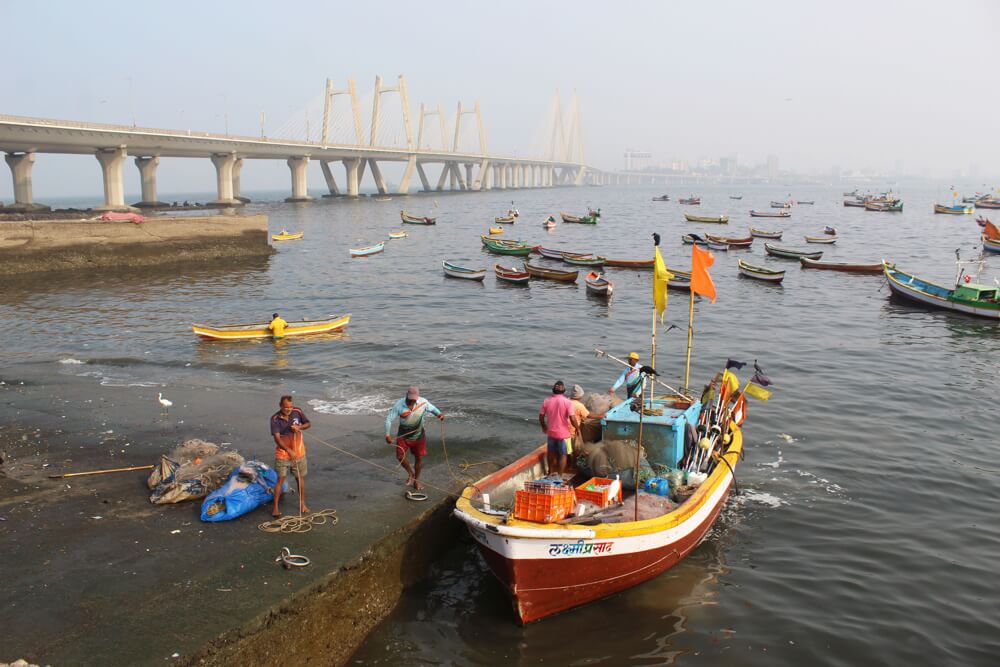
At Worli’s edge where the sea meets the land, fishermen unload their catch gathered after spending hours at sea. The Bandra-Worli sea link, now 13 years old, had already reduced their catch and changed fishing schedules; the Coastal Road has worsened the problems. When there was no Coastal Road, they used to catch prawns from the zone where the road work is now on. The quality was superior and they could sell for Rs 500 a kilogram; on a good day, their nets got 20 to 30 kilograms. But the construction work does not allow them to fish in that zone anymore. The intrepid fishermen found an alternative place but prawns are difficult to find here and, on the odd occasion that they do, their catch has been reduced by half. The frequency of boats going into the sea has reduced too in the past few months.
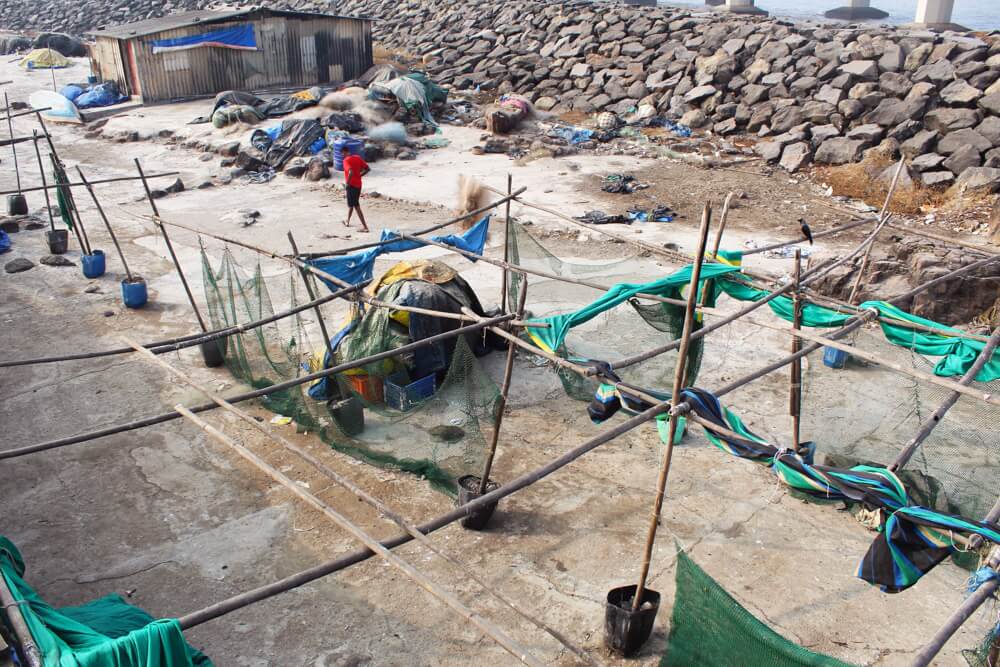
This section of the Worli Koliwada is used by the Kolis to pluck the fishes from the fishing nets, and carry out related work like sorting, cleaning and drying. Groups of fisherwomen would be seen segregating and cleaning large piles of fish till late in the afternoon on most days. The Kolis say that the area used to be busy and crowded every morning, but after the Coastal Road construction began, it often lies empty because the catch has reduced. Fisherfolk do not even go out to the sea every day. “Before the land-filling happened, it used to be a rocky area. The fish would gather and stay here. Now, they have reclaimed everything by land-filling 1 to 1.5 kilometres of the area. The water current is completely diverted,” says Vijay Patil.
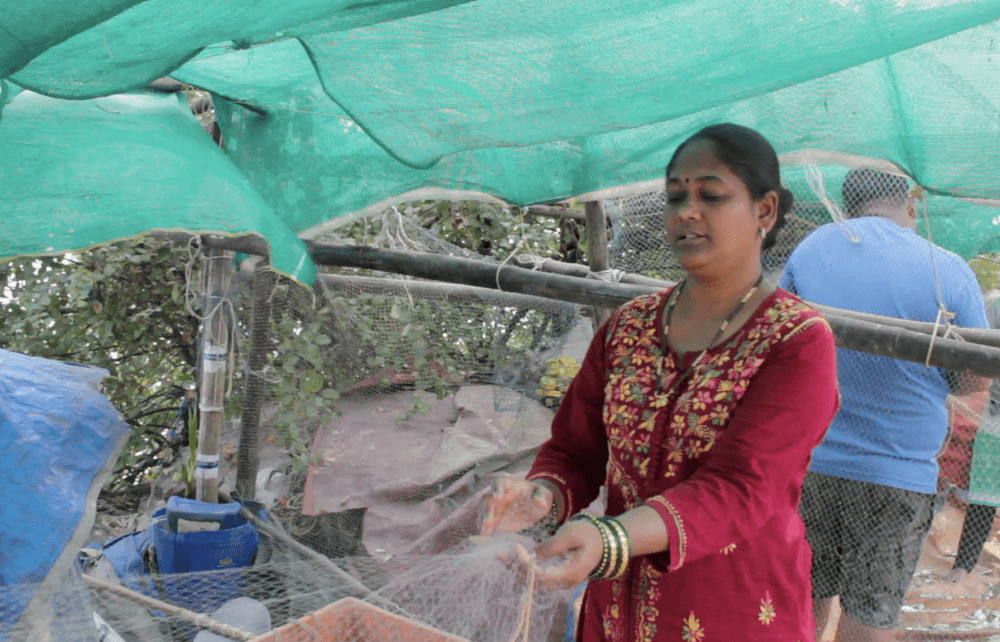
“It is their dream project, but it has finished our dreams,” says Ritushree Diwalkar, who has seen a decline in her family’s income. The sheer quantity of fish caught in a day would keep the fisherfolk working from morning till at least 4pm but not anymore. Diwalkar says that the construction causes vibrations, besides other visible disturbances, which have been driving the fish away. Parag Tandel, artist and auto-ethnographer who runs the Tandel Fund of Archives to document the lives and history of Kolis, attests this. “Earlier, Mumbai’s fishermen would not go beyond 3 kilometres to fish. Noise and light pollution from the city have driven the fish away from the coast.” Diwalkar wants to send her young son to a good educational institution for his graduation but she is worried about the family’s financial condition now.
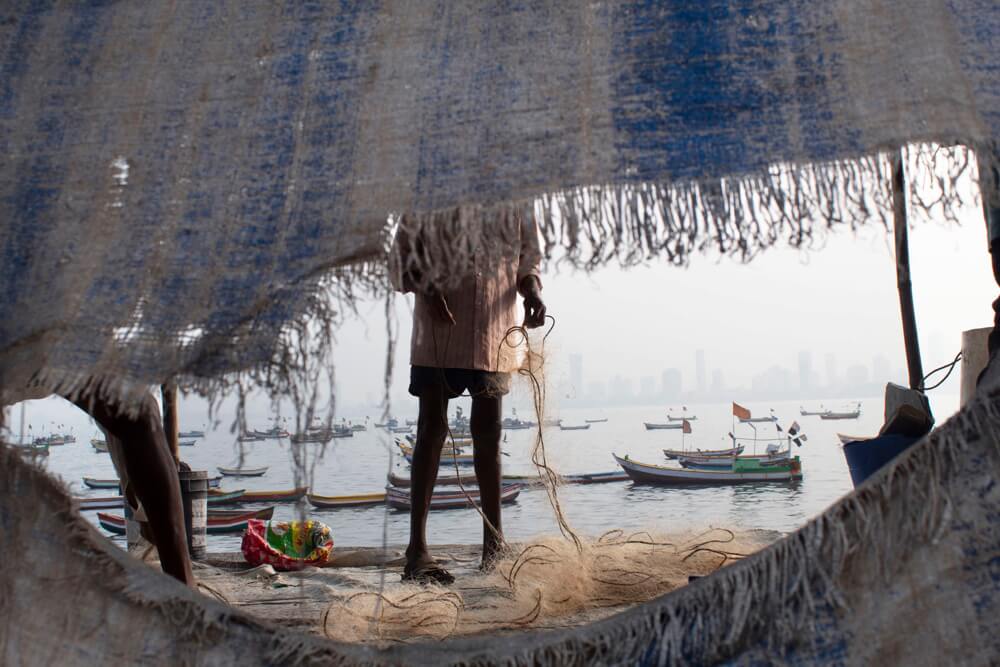
Framed between fishing nets, the city looks alluring, its skyline across the water as the classic symbol of urban development. Yet, this development has challenged the relationship of the Kolis with the sea. “Our profit has reduced – it’s just 25 per cent of what it used to be. It’s difficult to manage employee payment, diesel, and maintenance required for our boats. Our income has declined with the fish catch,” says Vijay Patil. Yet, they have no option but to continue the trade that was handed down to them through generations, decades before the coastal road was even on Mumbai’s urban plan. The lack of support from the government over the years has not deterred the community.
The Coastal Road, once complete, will not only redesign the city’s landscape but also change the interaction that the Kolis have with the sea – and the city. Vehicles will zip across on the road over the sea but the fisherfolk will continue to struggle to earn their livelihood. How long they will set out in the wee hours of the morning, harnessing their boats and hoping for a good catch, they wonder.
Aboli Maharwade is a postgraduate student at SCM Sophia Mumbai. She is interested in learning about the impacts of Climate Change on the environment. Passionate about photography, she likes to tell stories of the city and its people through the visual medium. She worked on this photo essay as her student multimedia storytelling project.
